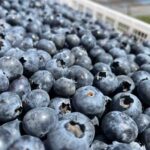At the end of 2023, Argentina's politics took a 180° turn. After 20 years of populism that ended with an annual inflation rate of 240%, an economic collapse, and rising poverty, society decided to end this cycle and voted for the far-right liberal Javier Milei.
This marked a radical change in how politics and the economy were managed. In the new government's first year, significant cuts were made to public spending, bureaucratic obstacles eliminated, and corruption tackled.
As a result, public debt was reduced, and inflation slowed down, dropping from 20% to 3% monthly. In monetary policy, the peso was strengthened, and the gap between the official and parallel dollar narrowed.
However, these changes did not come without cost. Society had to make significant sacrifices, with purchasing power plummeting and state jobs being reduced.
For the productive sector, Milei meant a radical shift in the business approach. After years of hyperinflation, financial dealings, and speculation, the economy is on its way to normalizing. This means that it is now possible to plan, budget, and adjust accounts, among other things.
For the fruit industry, the benefits of the new system are not yet visible, there is still work to be done. In the short term, concerns include the revalued peso and high costs. The promised tax cuts, aimed at making the country competitive again, have not yet been implemented.
There are also no labor reforms, a factor that has a significant impact on the fruit sector. Another point is the international trade relations, since tariff reductions have not yet been negotiated, trade agreements have not been signed, and new markets have not been opened.
Thus, Milei's first year ended "without triumphs or tragedies." Fresh fruit exports in 2024 reached 720,000 tons and $535 million. These figures are slightly higher than in the past two years, but they are far from the former high, when exports exceeded 800,000 tons and foreign exchange earnings were between $700-800 million.
Therefore, for now, it's not possible to speak of a recovery, only a slight improvement. The situation varies by fruit, as the international context adds yet another layer to the national landscape. This has been particularly challenging for lemons, a fruit facing a global crisis due to overproduction.

The outlook for both fresh and processed lemons is complex. The 170,000 tons of fresh lemons exported in 2024 are the lowest in the last decade. There was little interest in lemons in external markets.
In contrast, sweet citrus fruits are in a better position. Due to significant losses in the two main producing regions—Brazil and Florida—there is a global shortage of oranges. Mandarins are also in increasing demand, due to their success with northern consumers. On the other hand, Argentina's sweet citrus crops have recovered after two very challenging years due to a lack of rainfall.
Exports of oranges reached 66,000 tons (+87% compared to 2023) and mandarins 34,000 tons (+33%).
Regarding pome fruits, which are Argentina's top exported fruit, 344,000 tons of pears and 78,000 tons of apples were shipped. This is slightly higher than recent campaigns.
The main issue with both fruits is that Brazil, the primary destination, is experiencing a severe currency devaluation, making imported fruit expensive for Brazilian consumers. A similar situation is occurring with Russia, another important destination for pome fruits.
In general, the situation was favorable for smaller fruits like cherries, table grapes, peaches, and kiwis. Their exports recovered and were well above those of the last two years. The blueberry sector, however, faced difficulties, as high domestic costs prevent it from competing in the global market. The only opportunity for blueberries is in the organic segment. Currently, only about a third of what was exported 5-10 years ago is being shipped.
the fruit's sector recovery will take time. Many years of crisis have prevented the industry from modernizing as desired, and modern fruit growing is only competitive when it has access to a full technological package. Fruit growers are very aware of this, and work is already underway, but there is still a long way to go.
On one hand, there's the adoption of new technologies (irrigation, covers, anti-frost and anti-hail systems); on the other, improvements need to be made in better management systems, variety replacements, yield increases, and fruit quality improvements. The goal is to work on the recovery of Argentina's fruit sector so that it can return to its peak, and that can only be done through competitive and sustainable development.


























